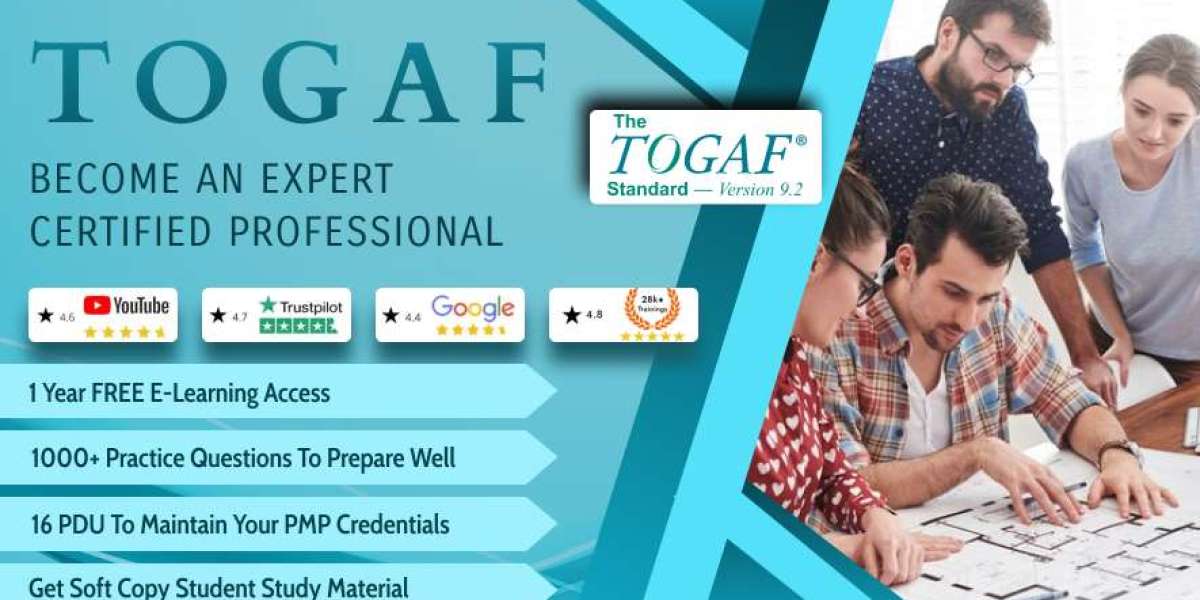In the realm of enterprise architecture, the TOGAF (The Open Group Architecture Framework) certification stands as a significant benchmark for professionals aspiring to excel in the field. As the technological landscape continues to evolve at an unprecedented pace, the relevance and value of TOGAF certification in 2024 remain a subject of scrutiny and interest. In this article, we delve into the essence of TOGAF certification, its evolution, and its enduring significance in today's dynamic business environment.
Understanding TOGAF Certification
TOGAF, developed and maintained by The Open Group, provides a comprehensive approach to designing, planning, implementing, and governing enterprise information architectures. At its core, TOGAF embodies a methodology and framework for enterprise architecture that enhances organizational efficiency, agility, and innovation.
TOGAF certification, offered at various levels including Foundation and Certified, validates an individual's understanding and proficiency in applying TOGAF principles and practices to real-world scenarios. It equips professionals with the knowledge and skills necessary to navigate complex architectural landscapes and drive strategic business objectives effectively.
The Evolution of TOGAF
Since its inception, TOGAF has undergone several iterations and updates to keep pace with the evolving industry standards and technological advancements. With each version, TOGAF has adapted to address contemporary challenges and emerging trends in enterprise architecture.
In 2024, TOGAF continues to evolve, embracing modern methodologies such as Agile and DevOps, and integrating cloud computing, cybersecurity, and digital transformation considerations into its framework. This evolution reflects TOGAF's commitment to remaining relevant and responsive to the evolving needs of organizations in an increasingly digital-centric world.
The Value Proposition of TOGAF Certification
1. Industry Recognition and Credibility
TOGAF certification carries significant weight in the industry, serving as a testament to an individual's expertise and proficiency in enterprise architecture. Employers value TOGAF-certified professionals for their ability to align business goals with technology solutions and drive organizational success through effective architectural practices.
2. Enhanced Career Opportunities
In today's competitive job market, possessing TOGAF certification can significantly enhance career prospects and open doors to lucrative opportunities. Organizations across various sectors actively seek TOGAF-certified professionals to spearhead architectural initiatives, lead digital transformation efforts, and optimize IT infrastructure for maximum efficiency and innovation.
3. Alignment with Best Practices
TOGAF certification equips professionals with a robust set of methodologies, tools, and best practices endorsed by industry leaders and practitioners worldwide. By adhering to TOGAF principles, certified architects can streamline processes, mitigate risks, and facilitate seamless collaboration across departments, thereby fostering a culture of innovation and continuous improvement within their organizations.
4. Adaptability and Flexibility
One of the key strengths of TOGAF is its flexibility and adaptability to diverse organizational contexts and business requirements. TOGAF-certified professionals possess the skills to tailor architectural solutions to meet specific organizational needs, whether it involves legacy system integration, cloud migration, or digital transformation initiatives.
5. Global Reach and Recognition
TOGAF certification enjoys widespread recognition and adoption across the globe, making it a valuable asset for professionals seeking international career opportunities. With a TOGAF certification in hand, architects can demonstrate their ability to operate in diverse cultural and geographical environments, making them highly sought after by multinational corporations and global enterprises.
Emerging Trends Shaping the Future of TOGAF
As we look ahead to the future of TOGAF certification, several emerging trends are poised to shape its evolution and relevance in the years to come:
1. Integration of Emerging Technologies
The integration of emerging technologies such as artificial intelligence (AI), machine learning (ML), blockchain, and the Internet of Things (IoT) is reshaping the enterprise architecture landscape. TOGAF is expected to adapt and incorporate these technologies into its framework, enabling architects to design innovative solutions that leverage the full potential of emerging digital capabilities.
2. Emphasis on Security and Compliance
In an era of heightened cybersecurity threats and regulatory scrutiny, organizations are placing greater emphasis on security and compliance within their architectural frameworks. TOGAF certification is expected to evolve to address these concerns, with a stronger focus on risk management, data privacy, and regulatory compliance across industries and jurisdictions.
3. Agile and DevOps Integration
The Agile and DevOps methodologies have revolutionized software development and deployment practices, emphasizing collaboration, flexibility, and continuous improvement. TOGAF certification is anticipated to integrate Agile and DevOps principles more seamlessly, empowering architects to adapt to rapid changes, deliver value incrementally, and foster a culture of innovation within their organizations.
4. Sustainability and Environmental Considerations
As sustainability and environmental stewardship become increasingly important priorities for businesses worldwide, TOGAF certification may incorporate frameworks and guidelines for designing eco-friendly architectures that minimize environmental impact and promote resource efficiency.
5. Enhanced Focus on Customer Experience
In an era of heightened customer expectations, organizations are prioritizing customer experience (CX) as a key differentiator and driver of competitive advantage. TOGAF certification may evolve to encompass CX principles and strategies, enabling architects to design architectures that deliver seamless, personalized experiences across digital channels and touchpoints.
Conclusion
In conclusion, the value of TOGAF certification in 2024 remains indisputable, offering professionals a pathway to success in the ever-evolving landscape of enterprise architecture. As organizations navigate digital transformation, technological disruption, and evolving customer demands, TOGAF-certified architects are poised to play a pivotal role in shaping the future of business innovation and strategic growth.
By embracing emerging trends, integrating cutting-edge technologies, and championing best practices, TOGAF certification empowers architects to drive organizational change, foster innovation, and deliver tangible business outcomes in an increasingly complex and competitive global marketplace. As the digital revolution unfolds, TOGAF certification stands as a beacon of excellence, guiding professionals towards success in the dynamic world of enterprise architecture.



